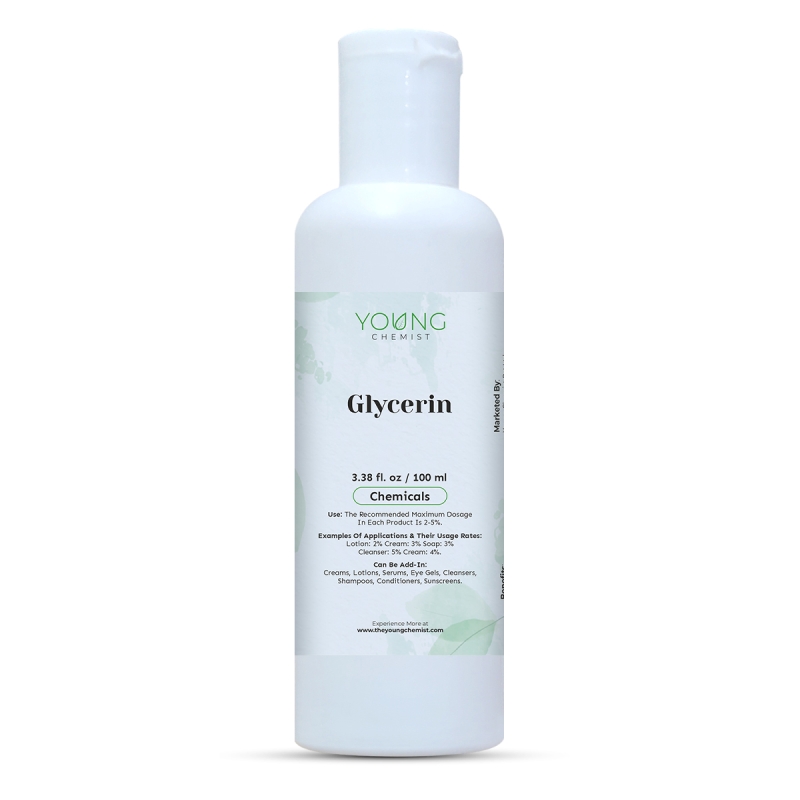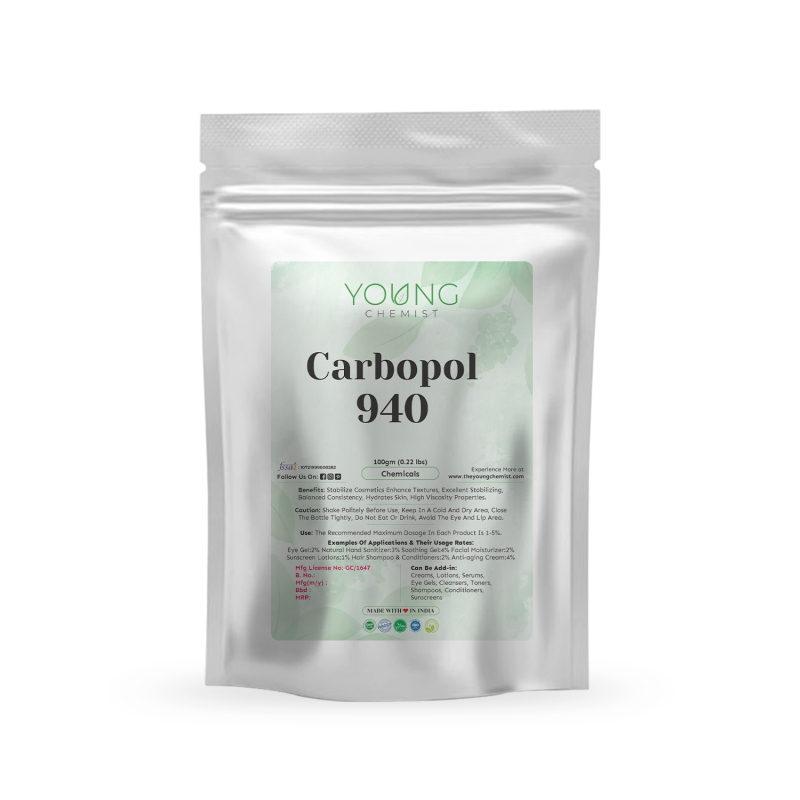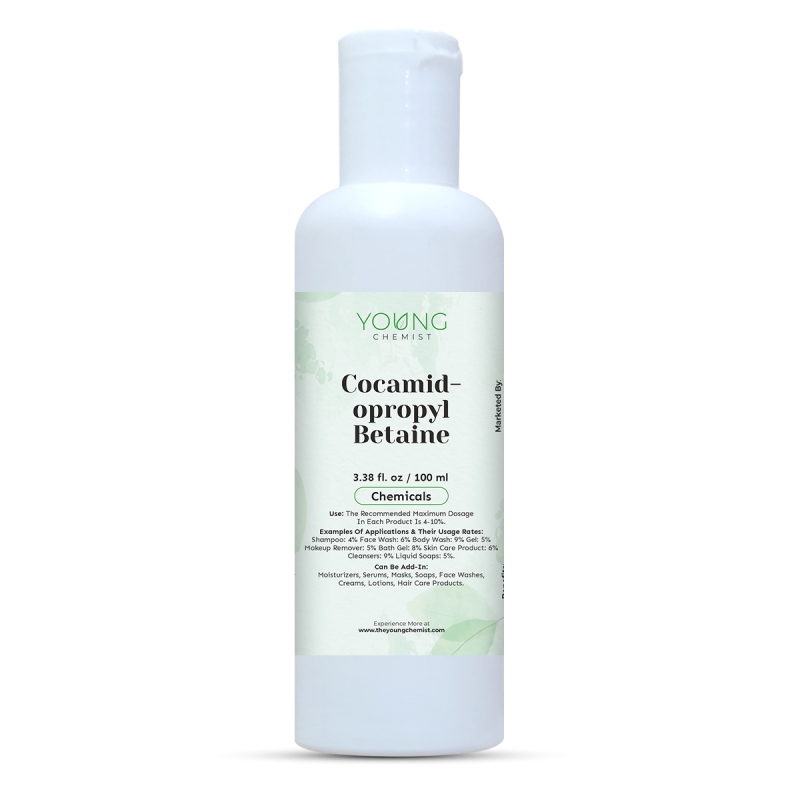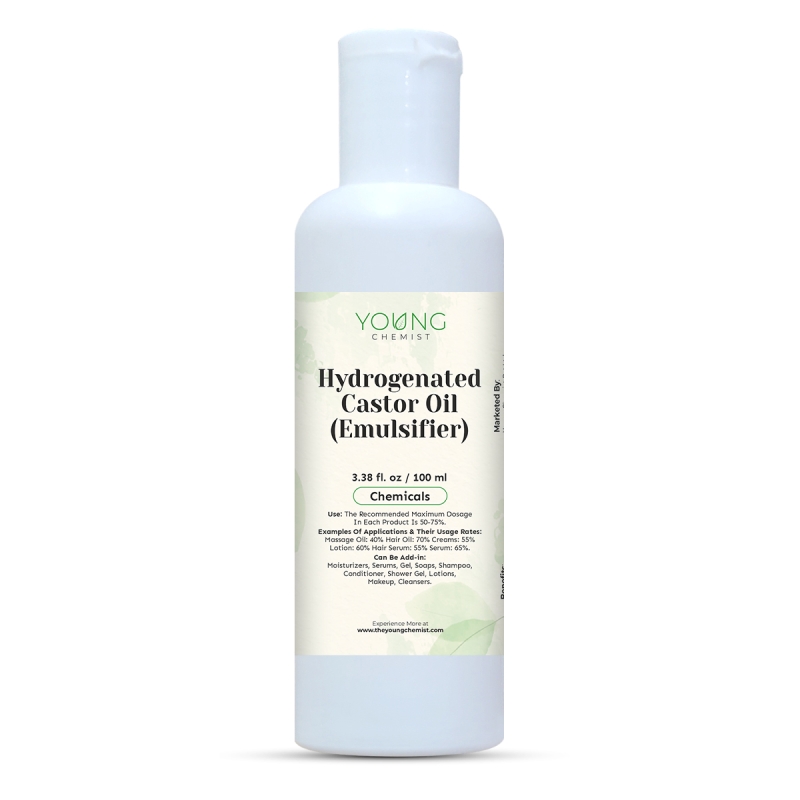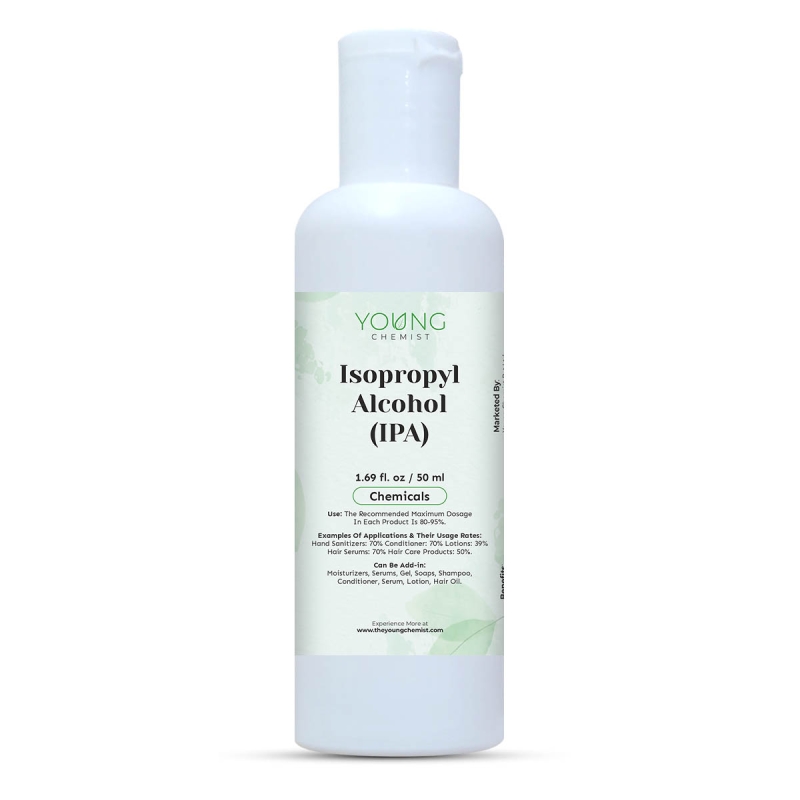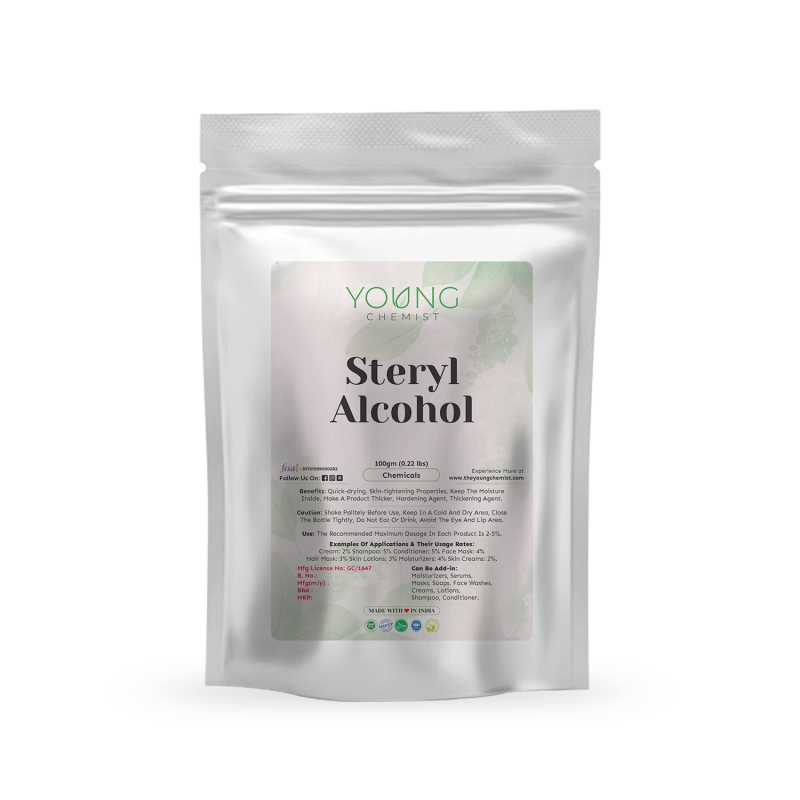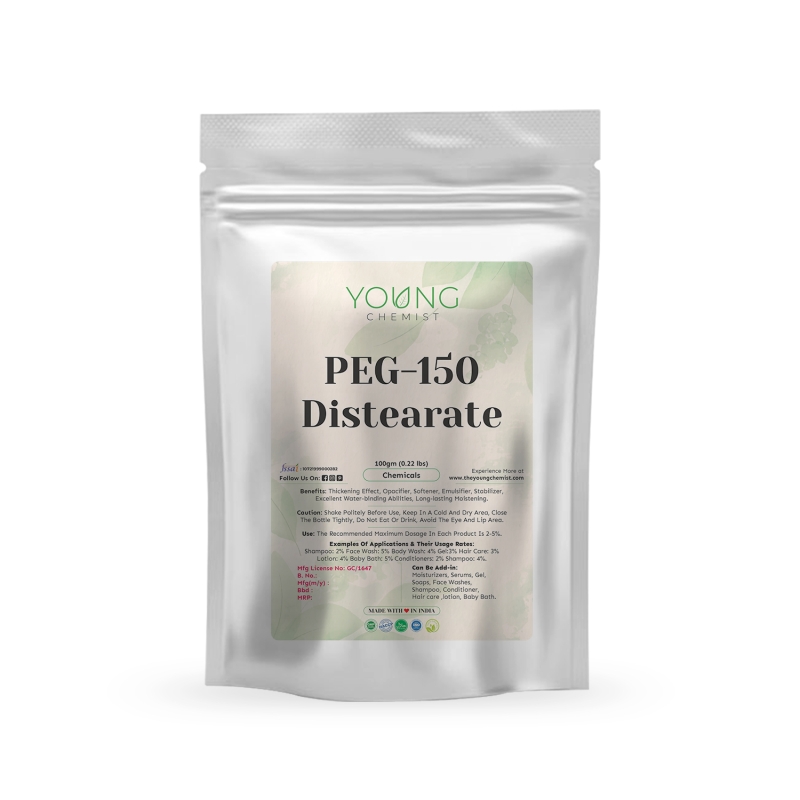-
No Item Added in Cart.
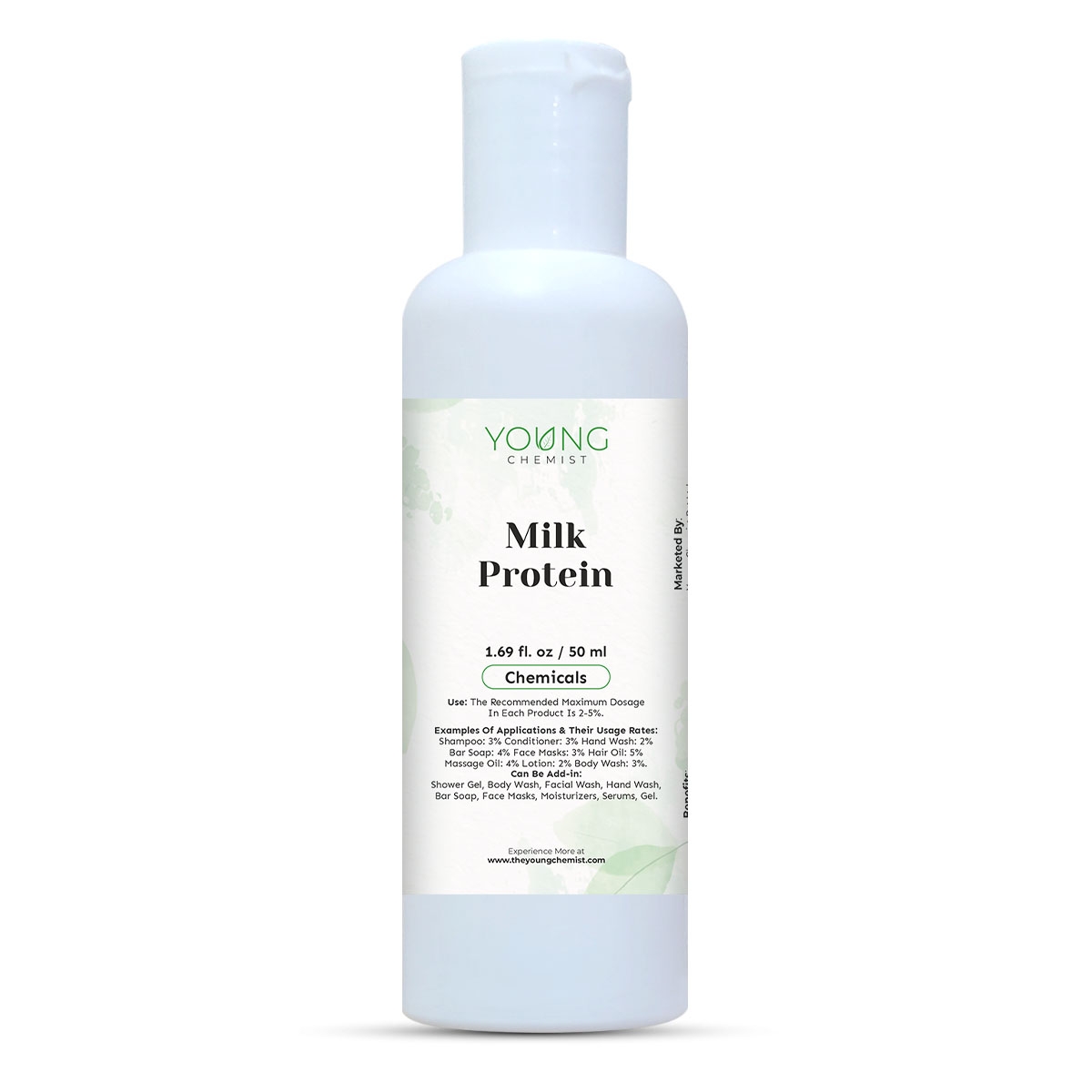
Young Chemist Milk Protein is a popular cosmetic chemical used in various beauty and skincare products. It is derived from milk and offers several benefits for the skin and hair. Here is a description of Milk Protein, its benefits, how to use it, and some cautions to consider:
Milk Protein is a natural ingredient derived from cow's milk. It contains a combination of casein and whey protein, which are known for their nourishing and moisturizing properties. Milk Protein is commonly used in cosmetic formulations due to its ability to enhance the overall health and appearance of the skin and hair.
Milk Protein is commonly incorporated into various cosmetic products, including moisturizers, creams, lotions, shampoos, conditioners, and hair masks. Follow the instructions provided on the product packaging for specific usage guidelines. Generally, apply the product containing Milk Protein to clean, dry skin or hair and gently massage it in until fully absorbed. Use it regularly as part of your skincare or hair care routine for best results.
- Nourishment: Milk Protein is rich in essential amino acids, vitamins, and minerals that provide deep nourishment to the skin and hair, promoting overall health and vitality.
- Moisturization: The presence of natural lipids in Milk Protein helps to moisturize and hydrate the skin and hair, reducing dryness and leaving them soft and supple.
- Repair and Protection: Milk Protein assists in repairing damaged skin and hair by promoting the regeneration of cells and strengthening the natural protective barrier.
- Anti-Aging: It contains peptides that help to improve skin elasticity, reduce the appearance of wrinkles, and promote a youthful complexion.
- Hair Strength: Milk Protein can enhance hair strength and resilience, reducing breakage and promoting healthier-looking hair.
- Allergy Sensitivity: Some individuals may have allergies or sensitivities to milk proteins. If you have a known milk allergy or experience any adverse reactions such as redness, itching, or swelling, discontinue use and consult a healthcare professional.
- Patch Test: Before using a product containing Milk Protein for the first time, it is advisable to perform a patch test. Apply a small amount of the product to a discreet area of skin and observe for any negative reactions within 24 hours.
- Avoid Ingestion: Milk Protein is meant for external use only. Avoid ingestion and keep the product out of reach of children.
- Consultation: If you have any specific skin or hair concerns, or if you are pregnant, nursing, or have any underlying medical conditions, consult a dermatologist or healthcare professional before using products containing Milk Protein.
Note: The information provided is for general informational purposes only and should not be considered as medical advice. Please consult with a healthcare professional or dermatologist for personalized recommendations and guidance regarding the use of Milk Protein or any other cosmetic ingredient.
Product Questions
Milk protein products are supplements or skincare items that contain proteins derived from milk. These proteins, like casein and whey, help nourish and strengthen your body or skin, depending on the product.
Milk protein products can moisturize and nourish the skin, helping to improve its texture and elasticity. They may also provide a gentle exfoliating effect and promote a smoother, more radiant complexion.
Generally, milk protein products are mild and can be used by most skin types. However, if you have a dairy allergy or sensitive skin, it’s best to do a patch test first or consult with a dermatologist.
Yes, milk protein products, especially those with whey protein, are popular among athletes and bodybuilders for muscle recovery and growth. They provide essential amino acids that support muscle repair and development.
Apply milk protein skincare products according to the instructions on the label. Typically, you would cleanse your skin first, then apply the product, and follow up with a moisturizer if needed.
No, milk protein products are not vegan-friendly as they are derived from dairy. If you follow a vegan lifestyle, look for plant-based protein alternatives instead.
Yes, milk protein products can be used alongside other skincare products. Just ensure you use them in the correct order—usually, apply lighter products first and heavier ones later.
Store milk protein products in a cool, dry place, away from direct sunlight. Always check the specific storage instructions on the product label.
Side effects are rare but can include skin irritation or allergic reactions in some individuals. If you experience any discomfort, discontinue use and consult a healthcare professional.
Yes, milk protein products can benefit hair care by strengthening and conditioning hair. They can help improve hair texture and add shine. Look for hair care products specifically formulated with milk proteins for best results.





